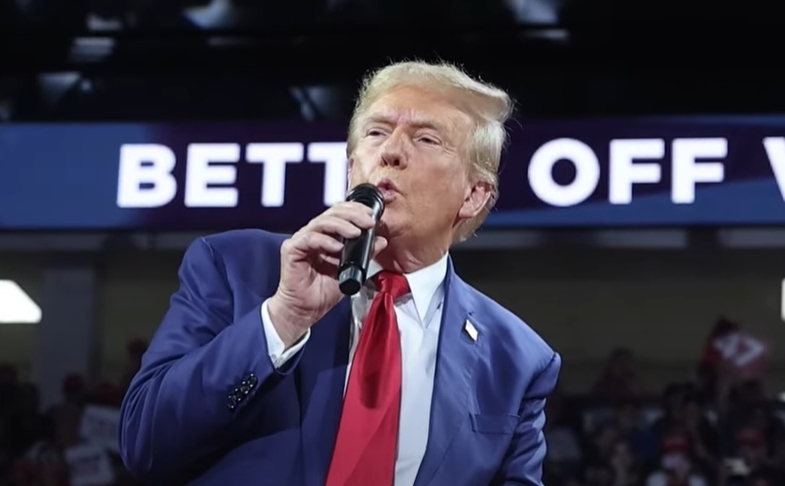
Recently, the Trump administration announced plans to cancel a hazard assessment ruling on greenhouse gas emissions, aiming to relax climate regulation in industries such as automobiles and power plants. On the surface, this plan appears to be aimed at reducing the burden on businesses and saving environmental compliance costs, but in reality, it may bring more uncertainty to many businesses and even trigger a series of legal risks and regulatory confusion.
Although some industry groups welcome this policy adjustment, believing that it will reduce costs, for most companies that have already invested significant resources to comply with existing emission standards, this policy change undoubtedly brings enormous uncertainty. Especially for those enterprises that have already made huge investments to adapt to the current environmental regulations, the sudden revocation of policies has left them with doubts about their future business decisions.
Lawyers point out that although companies expect to reduce regulation, frequent or sudden policy changes may disrupt the industry's development trajectory and create "regulatory uncertainty". For example, in the automotive industry, many manufacturers have adjusted their product design and production processes based on existing environmental standards. If the Trump administration revokes these regulations, it could not only result in companies losing their investment returns, but also trigger state governments to file lawsuits against past emissions practices, demanding that companies compensate for environmental damage.
In addition, this policy change may intensify conflicts between industries, state governments, and consumers, and state governments may seek to adopt stricter emission control measures outside the framework of federal regulations. Professor Camille Panu stated that the industry has adapted to existing regulatory standards, so excessive relaxation of regulations, although appearing to alleviate the burden on businesses on the surface, may actually disrupt market stability.
Another controversial point of this policy is the potential judicial risks it may trigger. According to current laws, once greenhouse gases are identified as a threat to human health, the federal government can regulate them through legislative means. But the policy reversal of the Trump administration may lead to the collapse of this legal framework, leaving various industries facing an uncertain legal environment.
For example, the power industry accounts for about a quarter of greenhouse gas emissions in the United States, and has long relied on natural gas, solar energy, and wind energy to gradually reduce carbon emissions. Nowadays, if the ruling of the Environmental Protection Agency is overturned, power companies may lose their enthusiasm for investing in clean energy and may even face legal lawsuits from local governments or consumers demanding compensation for historical emissions.
Although some industry groups welcome the proposal from the Environmental Protection Agency, more industry representatives remain cautious. Industry organizations such as the American Petroleum Institute and the Trucking Association have expressed support for relaxing emissions controls, believing that it will reduce the burden on businesses and promote industry development. However, organizations such as the American Chamber of Commerce have stated that abolishing current regulations may bring more instability, which is extremely detrimental to long-term investment and business planning.
In addition, relevant associations in the automotive industry have also expressed similar concerns. Although some companies support relaxing emission controls, they remain cautious about larger policy changes. Automakers have already made significant investments in electric vehicles and clean energy vehicles, and drastic policy changes may undermine the market returns on these investments.
The Trump administration's policy reversal, although originally intended to reduce costs for businesses and promote economic growth, has actually sparked widespread concerns about future climate policy and regulatory uncertainty. For many companies that have already made significant investments within the existing environmental regulatory framework, sudden policy changes may not only result in direct financial losses, but also trigger a series of chain reactions such as legal litigation and industry instability.
Therefore, although relaxing regulations may seem beneficial in the short term, in the long run, how to promote enterprise development while ensuring the effectiveness of environmental protection is still an urgent problem that needs to be solved. In this context, establishing a more stable and forward-looking climate policy framework may be the best path to avoid regulatory uncertainty and legal conflicts.

According to the foreign media The Verge, recently, Tesla CEO Elon Musk's goals in the field of fully autonomous driving (FSD) have once again fluctuated.
According to the foreign media The Verge, recently, Tesla C…
In early 2026, Greenland along the North Atlantic coast bec…
Recently, the century-old American high-end department stor…
Recently, the U.S. stock market has appeared turbulent amid…
Recently, the largest private equity firm in South Korea, M…
In early 2026, after the Trump administration detained Vene…